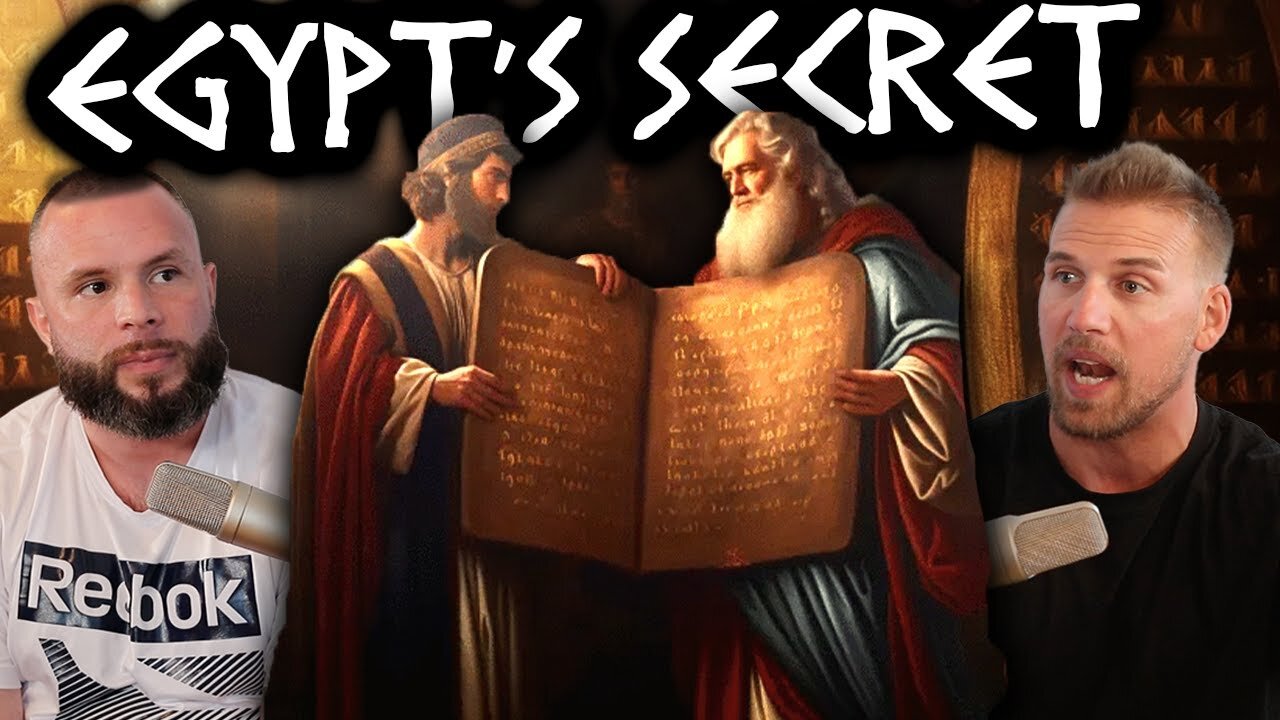Premium Only Content

What They Will NEVER Teach You About The Old Testament. True History of the Old Testament
What They Will NEVER Teach You About The Old Testament. True History of the Old Testament Uncovered
-
November 25, 2023
Gnostic Informant & Myth Vision Podcast
-
FAIR USE FOR EDUCATIONAL PURPOSES
-
Mirrored From:
https://www.youtube.com/@GnosticInformant
-
This video systematically compares biblical, Ancient Near Eastern and Greek creation accounts and to show that Genesis 1-3 is heavily indebted to Plato’s Timaeus and other cosmogonies by Greek natural philosophers. It argues that the idea of a monotheistic cosmic god was first introduced in Genesis 1 under the influence of Plato’s philosophy, and that this cosmic Creator was originally distinct from the lesser terrestrial gods, including Yahweh, who appear elsewhere in Genesis. It shows the use of Plato’s Critias, the sequel to Timaeus, in the stories about the Garden of Eden, the intermarriage of "the sons of God" and the daughters of men, and the biblical flood. This book confirms the late date and Hellenistic background of Genesis 1-11, drawing on Plato’s writings and other Greek sources found at the Great Library of Alexandria.
-
Berossus and Genesis, Manetho and Exodus proposes a provocative new theory regarding the date and circumstances of the composition of the Pentateuch. We argue that the Hebrew Pentateuch was composed in its entirety about 273-272 BCE by Jewish scholars at Alexandria that later traditions credited with the Septuagint translation of the Pentateuch into Greek. The primary evidence is literary dependence of Gen. 1-11 on Berossus' Babyloniaca (278 BCE) and of the Exodus story on Manetho's Aegyptiaca (c. 285-280 BCE), and the geo-political data contained in the Table of Nations. A number of indications point to a provenance of Alexandria, Egypt for at least some portions of the Pentateuch. That the Pentateuch, drawing on literary sources found at the Great Library of Alexandria, was composed at almost the same date as the Septuagint translation, provides compelling evidence for some level of communication and collaboration between the authors of the Pentateuch and the Septuagint scholars at Alexandria's Museum. The late date of the Pentateuch, as demonstrated by literary dependence on Berossus and Manetho, has two important consequences: the definitive overthrow of the chronological framework of the Documentary Hypothesis, and a late, 3rd century BCE date for major portions of the Hebrew Bible which show literary dependence on the Pentateuch.
-
All this evidence points to direct influence from Greek writings, especially Plato's Laws, on the biblical legal tradition. Finally, it is argued that the creation of the Hebrew Bible took place according to the program found in Plato's Laws for creating a legally authorized national ethical literature, reinforcing the importance of this specific Greek text to the authors of the Torah and Hebrew Bible in the early Hellenistic Era. This study offers a fascinating analysis of the background to the Pentateuch, and will be of interest not only to biblical scholars, but also to students of Plato, ancient law, and Hellenistic literary traditions.
-
 1:01:26
1:01:26
PMG
4 hours ago $1.18 earnedLibs In FULL PANIC Since Trump Took Office! Creating a Faith to Fit their Agenda
14.8K4 -
 7:09:22
7:09:22
Dr Disrespect
12 hours ago🔴LIVE - DR DISRESPECT - TRIPLE THREAT CHALLENGE - EXTREME EDITION
246K33 -
 55:00
55:00
LFA TV
12 hours agoThe End of the January 6 Hoax | TRUMPET DAILY 1.22.25 7pm
40K11 -
 1:13:37
1:13:37
Battleground with Sean Parnell
10 hours agoPresident Trump Is On FIRE w/ Savage Rich Baris
180K25 -
 1:59:59
1:59:59
Melonie Mac
6 hours agoGo Boom Live Ep 34!
73K17 -
 49:27
49:27
Sarah Westall
5 hours agoTrillion Dollar 5G Lawsuit, Project Archimedes, Mind Control & DEW Weapons w/Attorney Todd Callender
74.4K34 -
 53:11
53:11
Standpoint with Gabe Groisman
1 day agoTrump Is Crucial For Hostage Agreement Says Israeli Colonel
52.6K5 -
 1:01:22
1:01:22
Anthony Pompliano
1 day ago $1.29 earnedTrump Inauguration Sends Bitcoin Flying
38.6K4 -
 15:21
15:21
LFA TV
13 hours agoWHY GOLD WILL CONTINUE TO SKYROCKET
27.2K4 -
 1:31:40
1:31:40
MTNTOUGH Fitness Lab
7 hours agoThe Power of Brotherhood: How Vulnerability and Grit Shape Resilient Men with Thosh Collins
43K2